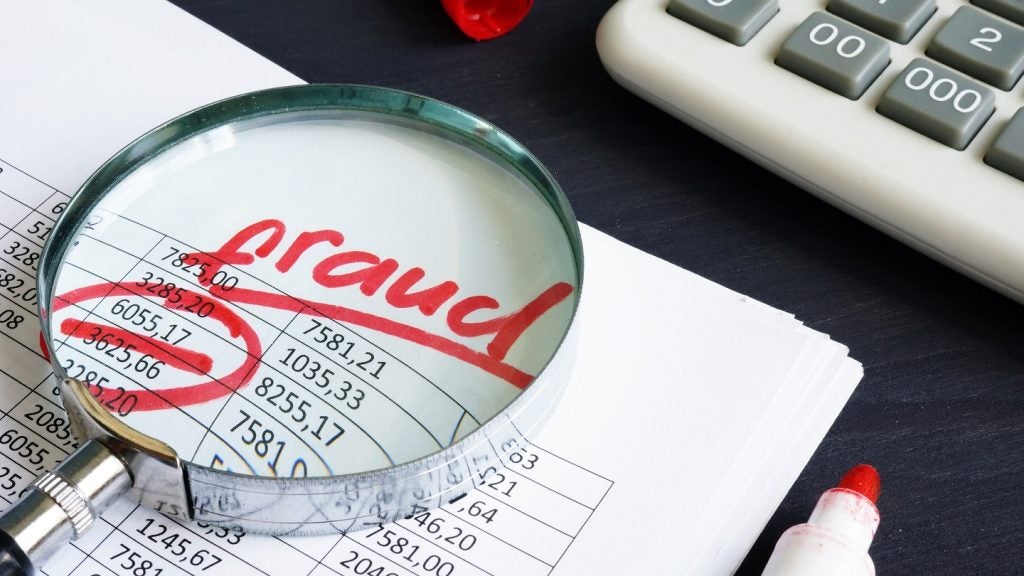
Asset finance fraud has been on the rise, costing European lessors millions of euros every year. Using views expressed at Leaseurope’s conference, Sotiris Kanaris analyses the market’s response to it.
Leaseurope’s EU conference on ‘Fighting Fraud in the Leasing Industry’, held in Brussels on 17-18 November, presented an opportunity for industry experts to share their experiences of fraud and discuss ways to reduce its occurrence.
The incidence of fraud in the asset finance industry is low compared to other industries. According to statistics by UK fraud prevention service Cifas – based on frauds recorded by its members – the number of frauds recorded by the UK asset finance organisations fell from 9,665 in 2010 to 8,932 in 2014. Cifas projected that in 2015 the number will fall further to 8,241.
Asset and consumer finance partner at Shoosmiths Roger Potgieter, using CIFAS data, says that asset finance fraud in the UK – as a percentage of general fraud- has been between 3-4.5% over the past five years.
However, Potgieter believes that the small share shouldn’t be a "cause for complacency" for lessors.
This view is shared by Eric Berthelemy, corporate secretary and compliance officer at Societe Generale Equipment Finance (SGEF), who highlights that the cost of fraud events is high despite their low occurrence.
How well do you really know your competitors?
Access the most comprehensive Company Profiles on the market, powered by GlobalData. Save hours of research. Gain competitive edge.

Thank you!
Your download email will arrive shortly
Not ready to buy yet? Download a free sample
We are confident about the unique quality of our Company Profiles. However, we want you to make the most beneficial decision for your business, so we offer a free sample that you can download by submitting the below form
By GlobalData"The occurrence is lower than credit risk, but the losses can be quite significant and harm the image of a leasing business," says Berthelemy.
At the end of the last millennium, the FlowTex fraud scandal, which involved the multiple financing of drilling equipment, stunned the German and European leasing industry. The total losses stood at approximately 2.6bn and less than 10% of the financed assets existed.
Fraudsters’ portrait
Fraudsters can be individuals or organised crime groups, with the latter playing an important role in the development of fraud.
Simon Staadegaard, manager special affairs at DLL, says that in the Dutch market an increasing number of fraud attempts are being made by ‘existing companies’.
"This is because these companies already have a track record of finances and their history is known to different kinds of databases. We saw that criminals targeted those kinds of companies and took them over," explains Staadegaard.
There are even cases of reputable companies committing fraud. Managing director at Deutsche Leasing Finance, Friedrich Juengling, gives an example of such fraud case: "We had a double financing fraud case this year, involving a company with a very good rating and business history, which had engaged with 5-10 leasing companies and banks."
There are a number of reasons why individuals resort to fraud, among which is greed and opportunism that Potgieter calls "human characteristics".
"The idea that it is a victimless crime makes people carry on. They think it is an easy way to make money and that nobody really suffers. Opportunism is another driver. People with no bad intent may find themselves presented with the opportunity [to commit fraud], they take the chance and get away with it. Once they have done it they may try it again, and before you know it they are into a cycle of fraud," says Potgieter.
Potgieter highlights that not everyone who engages in fraud activities regards it as a career, explaining that financial issues can act as a trigger for an individual to perform such activities.
"People caught up in this may not necessarily be career fraudsters. You may have people who started with good intentions, took a vehicle or some assets on finance and part way through the cycle of that activity run into difficulty. In need of some quick cash, they sold the asset thinking that the lender would never know about it, as the plan is to carry on paying the rentals. Before you know they are into fraud," Potgieter explains.
Those cases where the fraudster intends to repay all outstanding debts is characterised by chief executive officer of the Baltic region at SIA UniCredit Leasing Jevgenijs Belezjaks as "honest fraud".
Fraud cases increase
As financial difficulties influence some individuals to commit fraud, it’s unsurprising that the incidence of fraud in the European leasing industry has increased significantly since the economic crisis hit the continent in 2008.
Commenting on Leaseurope’s report on fraud published in 2010, its director general at the time Tanguy van de Werve said: "History shows that during times of economic difficulty, cases of fraud rise exponentially."
Following the economic downturn, lessors witnessed various fraud cases and had issues with their portfolio.
Belezjaks says: "You will never understand that there are problematic things in your portfolio, unless the economic climate changes."
According to statistics released by Cifas, application fraud has consistently been the biggest threat to the UK asset finance industry over the last five years, accounting for 85% of all reported frauds.
Cifas finds that three-quarters of these application frauds involve the applicant failing to disclose an address in order to hide his or her adverse credit.
Application fraud cases have been reduced from 8,247 in 2010 to 7,527 in 2014, with CIFAS anticipating a total number of 7,456 cases to be recorded by its members in 2015.
Mike Haley, deputy chief executive of Cifas tells Leasing Life: "Application frauds remain a particular threat to the asset finance sector, but it’s not immune from fraud types that afflict other sectors as demonstrated by the rise in identity fraud. This underpins the importance of collaboration between sectors including cross sector data and intelligence sharing to combat fraud. Fraudsters don’t work in silos, and neither should we."
Asset conversion fraud, which was mentioned frequently in Leaseurope’s 2010 report, has not been a big issue for the UK leasing industry as only 3-5.5% of all reports in the last five years were of this kind.
Cifas projects 262 asset conversion fraud cases in 2015, down from 539 in 2010.
Although identity fraud accounts for 40-50% of all UK frauds, in the asset finance and leasing industry it counts for just a small share of reported frauds.
Commenting on the low number of identity fraud events in the industry, Potgieter says: "Perhaps our industry is less attractive to those involved with identity fraud, or we have some good system in place to deal with that. On the other hand, maybe they haven’t got to us yet."
Cifas projects that in the UK asset finance industry identity fraud cases will rise from 439 in 2014 to 554 in 2015.
"When comparing 2014 to the projected figures for 2015, the 26% rise in identity fraud is consistent with a wider trend seen in Cifas data that shows identity fraud across the sectors in the UK rising 37% overall," writes Cifas.
Another type of fraud which has been on the rise in the UK asset finance industry is misuse of facility (MOF) fraud. Cifas anticpates that MOF fraud cases will rise from 650 in 2014 to 718 in 2015. Taking into account that in 2010 there were only 407 cases recorded by Cifas’ members, it is evident that there is a strong upward trend.
Most lessors have witnessed cases of double, triple or even multiple financing. In 2011 the Biegger & King case of double financing of construction equipment in Germany, resulted in losses of millions of euros for the lessors involved. The fraud was detected by the son of the company’s founder.
Managing director at UniCredit Leasing Germany Frederik Linthout also says that a number of lessors have discovered that they had internal double financing and he pointed out that cross-border finance fraud will increase in the near future.
"It was so easy to create money by simply multiplying the assets and paying the installment. Give me one reason why when this works on a national basis, fraudsters wouldn’t apply their model at a European level. I am sure cross-border financing fraud is the next trend.
"We are still at an early stage; we can really take counter-measures so as not to be too surprised by the losses we may suffer. We have to start fighting against it now and not in five years," Linthout explains.
A company having all the relevant documentation is not a guarantee that fraud will not take place.
Belezjaks talks about a case of illusory assets, where a manufacturing company asked for forklift financing. "The forklifts never existed, even though all documents were in order, including insurance," he says.
Although fraud occurs in all segments of the leasing market, Linthout believes that the construction and material handling business have a slight tendency to be more fraud-relevant than other asset classes.
Ways to combat fraud
"In the fight against fraud, the value of a fraud is not commensurate with the fraud amount. The little fraud will someday be duplicated into a real big loss if nothing is done in the meantime. So before having to face the iceberg, you’d better take care for smaller icecubes," says Berthelemy.
Berthelemy, is among many industry experts who suggest that the sharing of information is an important way to fight fraud.
"Unless we are talking about this, share information and statistics, we haven’t really got hope in defeating this," says Potgieter.
In Germany a number of companies, what Linthout refers to as "the coalition of the willing", started a common approach on gathering data called DataCollect in 2012. An external provider, PS-Team, collects, processes and refines the data supplied by the participating companies.
Anonymised data is delivered frequently – mostly monthly – and reconciled. As a result, double finance of vehicles and machinery is revealed completely automatically. In case of hits, the affected financing companies are informed through the web portal and automatic data transfer, in a standardised escalation process.
As of September, 2.8 million data records were compared through this system in 2015, with 150 confirmed cases of double financing and 12m risk potential recorded.
Linthout believes that DataCollect is financially beneficial. He says: "It is hard to define what we have saved in the sense of losses identified at an early stage. As the losses from fraud cases on a yearly basis count for single-digit million only on our PNL, it is a significant reduction of these losses."
Although these results have a positive effect on lessors’ financial performance, adopting such a system of data collection incurs costs for companies.
Juengling says that when Deutsche Leasing began to supply data to PS-Team, it invested in improving the quality of its asset data and developed a life cycle management system.
"When we started to deliver data to PS-Team, we initiated an investment programme inside Deutsche Leasing to get better quality of asset data. Meanwhile after an investment of 2-3m and a lot of IT, we have installed a life cycle management system for equipped assets," says Juengling.
Linthout adds that some lessors had to alter their internal process of documentation in order to supply the data.
He says: "When we started to collect data, I remember some of our colleagues in other companies first had to make sure that all the desired information is electronically available and not only in the paper documentation. So there was quite a lot of work to do before we could put the information together. Everybody is talking about Big Data, what we are talking about here is tiny data.
Even the lowest possible level of data collection is not that easy because you first need to define what to share, what is relevant in terms of data collection."
DLL uses a software system called FRISS to determine the morality of the customer during the application (or underwriting) process. This system generates a model-based estimation of the risk of fraud in an application.
Staadegaard said that DLL has built together with FRISS, several knowledge rules by analysing past fraud cases.
"At the moment we have 85 different rules when we check an application. It is done in a few seconds so it doesn’t cost us much time," says Staadegaard.
Some examples of these knowledge rules are: recent changes of director or transfer ownership of the business, financial problems of director as a private person, the distance between the dealer and the customer.
Floor checking is another process that industry professionals underline as significant in discovering, as well as preventing, fraud.
Juengling says Deutsche Leasing performs regular asset inspections and that there are rules on their frequency and the types of customers inspected.
He says that sometimes they announce to customers that a floor check will take place, while other times they pay a surprise visit.
Despite the costs and use of resources to perform floor checks, Juengling says there are economic interests from doing it, like greater transparency and a potential identification of additional business. In addition, he says it improves the image of the lessor, giving customers the feeling that "we take it seriously".
"It costs time and money, but it saves your from losses," Juengling summarises.
However there are some challenges for lessors when performing floor checks, for example, some mobile assets may be at different locations worldwide, there might be no direct access at usage sites (e.g large constructions sites), or asset components from different leasing companies may be used at the same time (e.g a crane).
In order to improve the efficiency of asset inspections, Deutsche Leasing has created an application for tablets which allows inspectors to have access to the company’s data.
Another technology which could be used to supervise assets and potentially combat cross-border finance fraud is the GPS tracking system. However, Linthout says it is too expensive, while Juengling refers to a case in China where they found the GPS in the garage but the mobile crane was gone.
Another line of defence for lessors is to train staff on the types of fraud and ways to identify it. SGEF’s Berthelemy says that they train the staff by circulating reports on existing fraud cases and inform them about new fraud schemes.
Juengling adds that it is important to train sales colleagues to understand the assets and not just to pick up leasing contracts or possibilities of financing.







